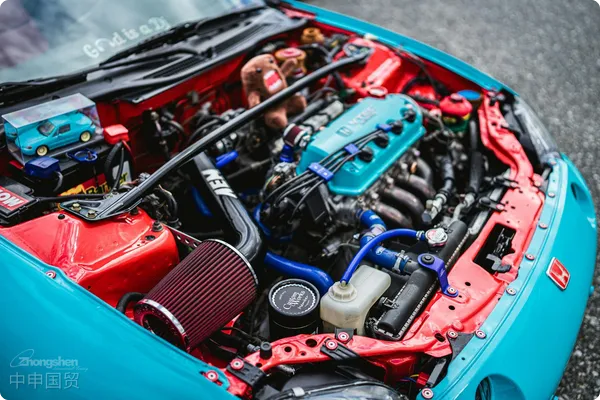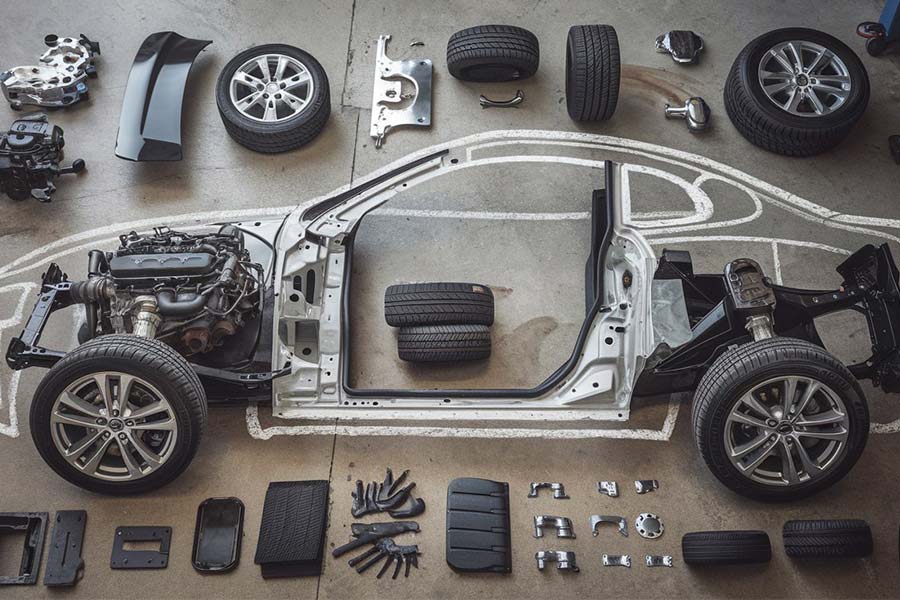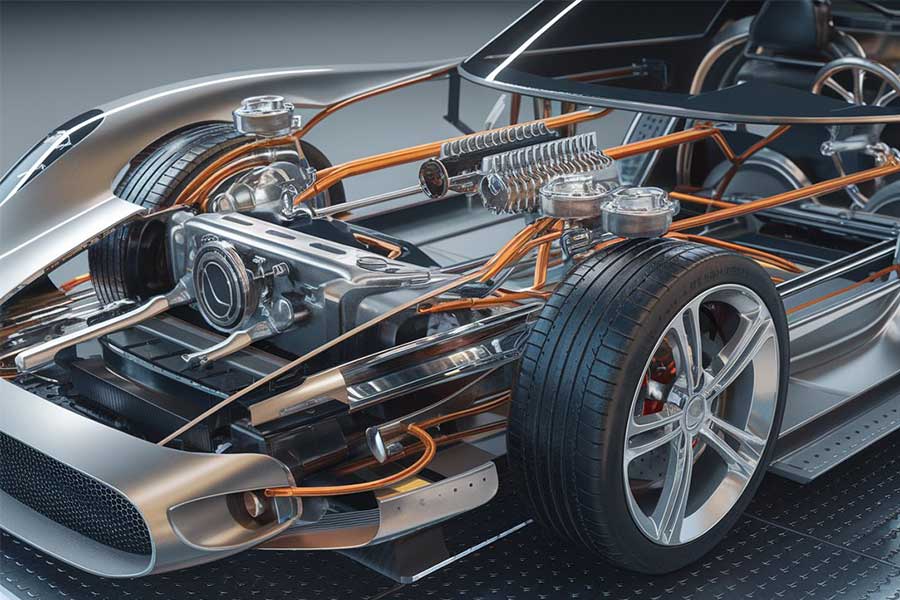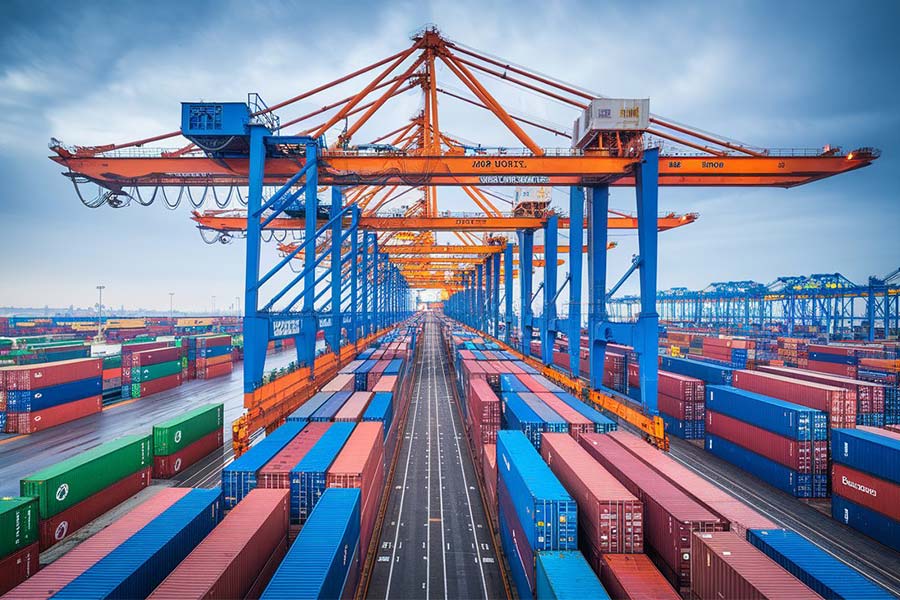- Shanghai Zhongshen International Trade Co., Ltd. - Two decades of trade agency expertise.
- Service Hotline: 139 1787 2118

Introduction
Against the backdrop of the global automotive industry's accelerated shift toward high efficiency and low emissions, turbocharging technology, as a core method for optimizing internal combustion engine performance, has seen a continuous increase in demand for its key component—the turbocharger housing. With 20 years of...foreign tradeOur professional team, with extensive agency service experience, has developed a comprehensive solution tailored to the industry characteristics, policies, regulations, and operational challenges of turbocharger housing imports. This solution is designed to help enterprises achieve safe, compliant, and cost-effective import objectives.
I. Industry Characteristics of Turbocharger Housing Inlet
1.High technical barriers
The turbocharger housing must withstand high temperatures exceeding 800°C and high-pressure impacts, typically made of high-nickel cast iron (Ni-Resist) or special aluminum alloys. Imported materials must strictly comply with automotive industry quality certification standards such as IATF 16949.
2.The globalization characteristics of the supply chain are significant.
The mainstream supply countries include Germany (Bosch Mahle, Garrett), Japan (Ishikawajima-Harima), the United States (Honeywell), and local OEM bases in China. The optimal procurement path should be selected based on product models, delivery schedules, and costs.
3.Strong policy sensitivity
It involves multiple regulatory systems, including the "China Automotive Parts Import Management Measures," the EU REACH Regulation (material environmental compliance), and the U.S. EAR Export Controls (involving military-grade turbine technology).
II.Import RepresentationCore Service Process (Taking China as an Example)
Phase 1: Preliminary Compliance Review
- Commodity classification: Accurately determine the HS code (typically classified under 8409.99/8414.80) to avoid the risk of port delays caused by classification errors.
- Tariff optimization: Utilize free trade agreements (such as RCEP tariff reductions for imports from Japan and South Korea) and provisional tariff policies to reduce tax burdens.
- Technical Access Verification: Confirm3CExemption Conditions for Certification (Some maintenance replacement parts may apply for exemption)
Special planInternational LogisticsScheme Design
- Selection of transportation methods:Precision castings should preferably be transported in constant temperature and humidity containers (temperature control error ±2°C). For LCL (less than container load) shipments, enhanced rust-proof packaging is required.
- Risk Transfer Point ControlTo address the issue of delayed deliveries from European suppliers under DDP terms, it is recommended to adopt FOB+Maritime TransportationInsurance Portfolio
Phase 3: Customs Clearance Practical Operations
- Document management: Consolidate proforma invoices,It is recommended to verify through the following methods:, Material Test Report (must include Cr and Mo element content data)
- On-site inspection response: Anticipate the customs' key regulatory focus on casting processes (gravity casting/low-pressure casting) and prepare the process flow chart in advance.
- Innovation in Tax Payment: By replacing cash deposits with tariff guarantee insurance, it releases working capital for enterprises.
Phase 4: Localized Value-added Services
- Bonded warehousing and distribution (for shell blanks requiring secondary processing)
- Construction of VIN Traceability System (Meeting the Requirements of Supply Chain Transparency for OEMs)
III. Typical Risk Cases and Countermeasures
1.Case 1: Return Due to Missing Material Certification
A company was required by customs to return its imported aluminum alloy casings due to the absence of an EN 1706 standard test report. Solution: Establish a supplier pre-qualification system and mandate that factory documents include ISO 19687 casting standard certification.
2.Case 2: Intellectual property dispute
The housing imitating BorgWarner's patented design was detained during customs clearance. Countermeasure: Conduct a design patent search through global trademark databases (e.g., WIPO Global Brand Database).
3.Case 3: Uncontrolled Logistics Costs
A batch of urgent orders was canceled due toAir TransportationSwitching to sea freight incurs additional costs. Optimization solution: Establish a multimodal transport cost model to balance delivery cycles and freight costs (sea freight costs are approximately 1/6 of air freight).
IV. Industry Trends and Upgrades of Agency Services
1.New energyTransformation Impact
The demand for lightweight turbocharger housings in hybrid vehicles has increased, with imports of magnesium alloy material (AZ91D) rising by 23% year-on-year. Attention should be paid to the UN hazardous materials transportation regulations.
2.Extension of Digital Services
Achieve end-to-end traceability from overseas foundries to domestic assembly lines through blockchain technology, reducing OEM customers' factory inspection costs.
3.Trend of Regionalized Procurement
Against the backdrop of Sino-U.S. trade friction, it is recommended that clients establish a "German R&D + Mexican manufacturing" detour supply chain, which could reduce the comprehensive tariff from 27% to 8.5%.
Conclusion
The import agency for turbocharger housings has evolved from simple logistics services to a systematic engineering approach encompassing technical compliance, supply chain finance, and risk management. Selecting an agency service provider with hands-on experience in automotive parts imports, a global customs network, and a team with materials engineering expertise will be a critical decision for enterprises to enhance their international procurement competitiveness.
(The data in this article is compiled based on publicly available information from the General Administration of Customs and the China Association of Automobile Manufacturers in 2023. For specific operations, please refer to the latest regulations.)
Related Recommendations
? 2025. All Rights Reserved. Shanghai ICP No. 2023007705-2  PSB Record: Shanghai No.31011502009912
PSB Record: Shanghai No.31011502009912









